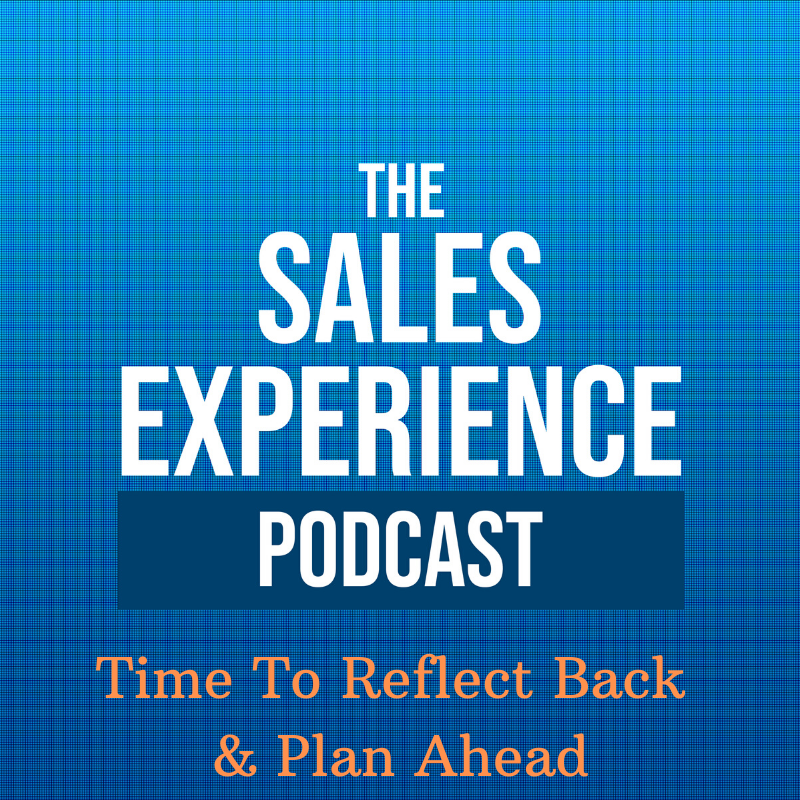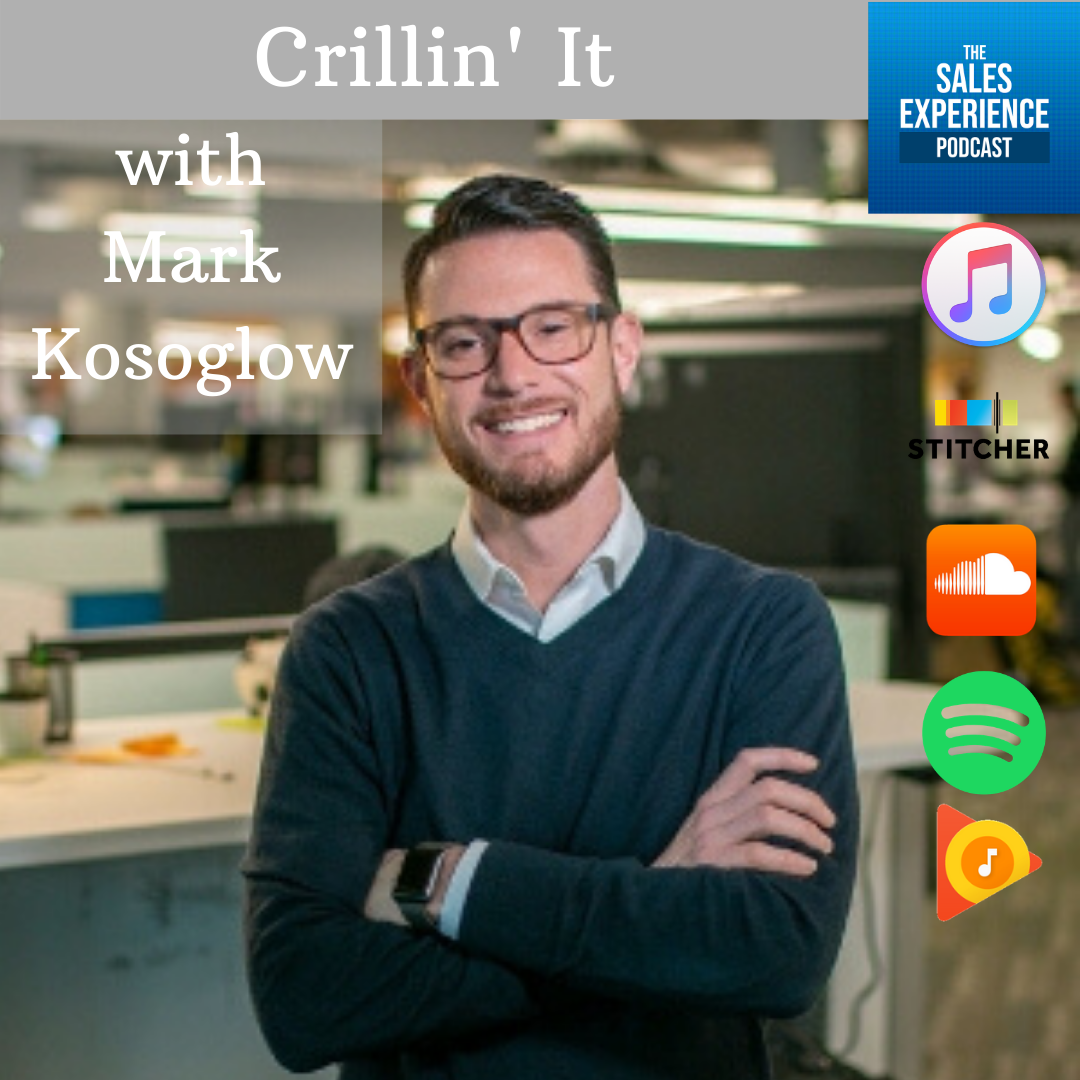Show Notes
Whether you are an aspiring founder, or seasoned sales professional – success comes from growth. The best, long term sustainable growth strategy is selling more and generating income (versus raising money).
I had a chance to speak with Sean Sheppard, a serial entrepreneur, venture capital master and founder of GrowthX. We wind a conversational path from start up founders, to selling, to mindset, to human behavior.
In Part 1, Sean and I talk about:
- Selling as a Start Up Founder
- A businesses goal is to make money
- Having a clear message across marketing and sales
Download The Power of Authentic Persuasion ebook
Enroll in the Authentic Persuasion Online Course
Connect with Jason on LinkedIn
Connect with Sean on LinkedIn
Sean’s Bio:
Sean is a serial entrepreneur VC and co-founder of GrowthX and GrowthX Academy, with three successful exits, who has successfully grown dozens of early-stage companies across a wide variety of products and markets. He was recently named the #2 Online Sales Influencer and contributor at The Huffington Post. He’s now committed to working with countries, companies, entrepreneurs and those who want to work with them on building startup ecosystems and developing the next generation of leaders for the innovation economy.
E192 – Transcript
Jason: Welcome to the sales experience podcast. My name again is Jason cutter. On today’s episode I have Sean Sheppard. He is the co-founder of growth X and the growth X Academy. He is a contributor for Huffington post and has been for a long time a leading online sales influencer and is taking all of his experiences with building and selling businesses to help others start up their businesses and an ecosystem where he’s developing the next generation of leaders for this innovative economy that we’re now in going into this new decade. Sean, welcome to the sales experience podcast.
Sean: Hey, thanks for having me, Jason. I’m happy to be here.
Jason: Yeah, I’m really excited to have you on because of one thing that you’ve listed in your LinkedIn that really got my attention. I thought this would be a fun place to start our conversation where you said that your focus with growth X is to help entrepreneurs make money and not just raise money.
Jason: And I thought this would be fascinating because obviously the basis of that takes some sales. And with the startup economy, Silicon Valley, there’s a lot of selling that goes on to fundraise, but it’s different when you’re actually selling something to generate money. So let’s start there. Tell me kind of how you get people to shift to that or what different skill does it take? The sell actual product or service versus fundraising?
Sean: Yeah, look, I’ve always been an aspiring sales professional at heart from day one. Yes. I’ve been a serial entrepreneur and a founder of five companies with three exits. Uh, very expensive learning experience. Growth X should be, I hope to be my last job and the legacy that I can leave behind. And we started growth X because as a founder I was always the sales founder. I’m the non tech founder as they like to say in a very derogatory sense in Silicon Valley.
Sean: As if it’s a second class citizen status to be a non-tech found. But what I noticed and what I always had with me, it was great product-focused founders who would be wonderful partners. For me being the market focus side and I view any business through that prism of you’ve got a product side of your business and you’ve got a market side of your business and if you’re not paying equal attention to both, it doesn’t mean you’re going to fail, but you’re certainly not de-risking the opportunity because at the end of the day when you’re taking something someplace new, you have limited time, money and resources to find the truth about where your product or service or widget or software or whatever it is fits in the market. And what I found as a serial entrepreneur turned investor, turned frustrated investor because companies were failing.
Sean: They were failing because they couldn’t build a market. And in the Valley in particular where there’s this very technology and developed technology focus and science focus, product focus, there is not enough emphasis. It has not been enough emphasis on sales. Traditionally product focus founders have always looked at sales as a commodity. And the reality is we now live in a different era. We live in what I call this age of, what we call it, growth X, this age of applied technology where it’s never been easier or cheaper to get a product or service to market. As a result, it’s also never been more difficult or expensive to get real traction for it in the market. So I think the pendulum is swung entirely in a different direction the other direction. And yet you still see 80% of founders focused 80% of their time on product in technology and staring at their screens as opposed to identifying problems and markets that they can solve really well and focus on solving the problem than delivering a product to serve that problem.
Sean: And hopefully with the sense of the notion that there’s a bigger market behind that one, two or three early customers that you can validate that you can solve this problem for it. So as myself and my partner started to look at it, we were all angel investors. We saw that the problem was really not in product development, but in market development as we’d like to call it. It doesn’t matter what you build, if you can’t get somebody to buy it, it’s not a thing, right? It’s not dog food until a dog food eats it as they like to say. So we built our entire fund structure and model and approach around the idea of helping our companies make money, not raise money. And the focus in the Valley, especially in the startup world, is always very much focused at the accelerator and incubator level on raising money and people “celebrate the race.”
Sean: And then what happens is, is they have that cold splash of water, that epiphany moment where let’s say that inflection point where they realize in their own mind and heart that, Oh shoot, I just raised $1 million. Now what do I do with it? When they hadn’t had any idea. Get customers, keep customers and grow customers. And that needs to be the emphasis because nothing happens until someone sells something and no one is typically able to sell something until somebody else recognizes a need. And people can’t recognize a need until they absolutely can articulate and identify a problem and gain mutual agreement on what that looks like and then explore different ways to solve it. And so you can reverse engineer your way into product-market fit if you’re focused on finding a market where there’s a problem that’s big enough that you can solve really well on a predictable, profitable, scalable way. And so our entire emphasis and focus the last six years at growth X has been on accelerating market development for great product development teams.
Jason: And there’s so much in what you just covered. I think what’s interesting is that a lot of stuff is started by that product, you know, developer creator in a field of dreams kind of a way, right? So if you build it, they will come and they just assume that something is so amazing. They hope it’s amazing, they hope people will want it because they think that people will want it or they realize that they built it for themselves. They think everyone else will. And yeah, it’s interesting what you say, how noisy things have become with, you know, there’s so many people creating so many things that are out there. Then costs even more and it’s harder to get awareness because it is so noisy and people being inundated with so much different stuff.
Jason: Can you get that founder, that product focus founder to become a salesperson or is the best strategy to bring in a salesperson to offset that product-focused founder?
Sean: It depends, right? If it’s a solo founder then you don’t have much of a choice other than to get that person. In my view, I think the founding team needs to sell the first deals that get you through the learning curve and they have to demonstrate to me that they can do that before they’re even an investible company. And our thesis personally as seed stage investors looking for early customers and early revenue and a clear path to product market fit with the right kinds of, milestone driven, you know, activities. So if you’re a solo founder, you want to stay a solo founder, then you’ve got to demonstrate to me that you can close the first X number of customers, give you a statistically significant cohort, right?
Sean: That says, okay, I think I’ve got a problem. I’ve figured out a way to solve it and here’s what I’ve learned from that. And then here are the unit economics support. The idea, this is a predictable, profitable, potentially predictable, profitable, scalable approach on a team level. If you have a founding team, there should absolutely be somebody of equal weight and importance and influence that is responsible for the market side of the business to work with the product side and they have to work together in a very iterative way. And that product person or product team has to respect that market developer’s role and the influence and importance of the market at large in the process of developing their product. And if they don’t, their chances of winning are reduced. And it’s typically a miserable experience for the team. Doesn’t mean you’re not going to win anyone with a product as sold, but it’s sure isn’t fun if you’re a market developer or an early sales founder, co-founder for sales hire in a startup.
Jason: And I think that obviously continues on even as the company develops where that communication between sales and marketing and the product development team needs to stay together and be tight at some level, right? Not necessarily at sales rep as the organization gets bigger and developer individuals, but management needs to be communicating, bringing everyone together and making sure it’s one cohesive team. Because I’ve seen that so many times. I’m sure you have as well, where there’s kind of a two teams kind of battling each other. Product development wants to create this. Sales wants to just sell this and sell this hope and dream and then you know, can it actually be delivered on?
Sean: So yeah, there’s often a huge disconnect there. Look one of the things that we notice, look, 70% of funded startups seed stage, never get to an 8 round or breakeven. 70% in the Valley, 7 out of 10, 8 of the top 10 reasons why that happens have to do with markets and people not with products and technology.
Sean: Only two of them have anything to do with the product or the tech itself or supply chain or anything about delivery. It’s all about whether or not your team can find the truth about where our product fits in the market, be functional learners and determine whether or not profitability exists in a market where people actually want something that you have to offer and the behaviors of the team are critical to that. So if they’re not behaving correctly and they’re not aligned from day one, it makes that a challenge. And one of the biggest problems that I see is we hire the wrong person at this stage. And that’s what I call stage relevance because my focus has always been on being the guy that takes something someplace new. It’s a very different dynamic, when you’re a stranger taking something strange to a bunch of other strangers.
Sean: Then when you’re working in a big company with a brand name and marketing support, resources and money and a history and a clear book of business and support and all the resources you need to go ahead and operate and optimize something that’s already been standardized. But when you’re creating, it’s very different. So one of the classic mistakes I see, we started to make over and over again. I say go try it. Say they’re, say they’re building a SAS product in financial services and they’re going to go sell the big banks. The first thing they do is they go find some senior sales guy that’s been selling financial services into big banks at some big company for a lot of years and has a book of business. It’s very impressive. They have C-suite relationships at all the major players. So what happens first? Well, that person wants a big fat salary and unlimited PTO and health care and you know all these things that startups don’t have.
Sean: Yeah. They want support. They want marketing materials and collateral. They want a clear, crisp message on a website. They want case studies, they want all this stuff that doesn’t exist. Right. And number one, they want that. Number two, most of them don’t have experience in creating those things. Number three, the team that they’re working for just wants them to close their relationships and convert those people into customers. Exactly. Meanwhile, so 6, 8, 12, 15, 18 months go by and there haven’t been any conversions or maybe there’s been one or two, but there hasn’t been enough to sustain the business to get to the next level and that person’s eaten up a shit ton of your, of your capital resources. They’re frustrated. The product team is frustrated because they love their product. They just think this shit should fly off the shelves.
Sean: Why? I don’t know. Probably because they made it. They have some vision in their head that everybody’s going to want what they have and they’ve never sold anything either. And they certainly haven’t done it at this stage, which is very different than selling, as I said, in a mature environment. So those two expectations collide. You get a shit show. And it usually ends up sucking up the majority of the resources and killing companies and it happens well more than 50% of the time, more like 70 to 80% of the time. I see that. So my advice to those people is immediately don’t hire those people, make them advisors, give them a half a point or a quarter-point or a point, whatever you believe is necessary of equity. Put them on a schedule with that equity of typically a one year cliff and give them an opportunity to earn that equity by making introductions into key relationships and acting as a credible objective. Third-party advisor to their book of business, their Rolodex as well as to you and see if that works.
Sean: And if that works, and then they’re willing to take on all the things that we talked about, which is half the salary, twice the upside on the equity side, have to build their own comp plan that meets the organizational investor objectives, convert and define these proofs of concept and then build out all the things necessary to get yourself to something that would just keep you on the field long enough to learn and get to that next milestone. Then you could have that conversation, but in the meantime, what you need is somebody who’s either won or failed at taking something someplace new and they can’t help themselves. They have to do it again. They embrace ambiguity, they love to create, they communicate beautifully across teams.
Sean: They can talk to the humans in the marketplace and the engineers on their own team and they can drive that functional learning that needs to happen in order to build something that people want because everybody just forgets. You raise $1 million in this town. That’s 12 months of money that goes like that. Especially if you’re selling B2B in a 12 to 18-month sales cycle. You don’t have enough money, to do this. So you have to do it in the most practical and realistic approach possible.
Jason: Alright, everybody, that’s it for part one of my conversation with Sean Sheppard. Make sure to go to cutterconsultinggroup.com so you can find the transcripts, his links, and the show notes for this. We had an amazing conversation. For the rest of this, just a spoiler alert, please make sure to subscribe everywhere you can find podcasts, iTunes, Stitcher, Spotify. It’s also on SoundCloud, Google play. It’s on the cutter consulting group website if you want to listen to it or download it from there. And as always, keep in mind that everything in life is sales and people remember the experience you gave them.
![[E192] Growth Through Sales with Sean Sheppard – Part 1 of 4](https://episodes.castos.com/salesexperiencepodcast/images/Sean-Sheppard-Cover-Image.png)


